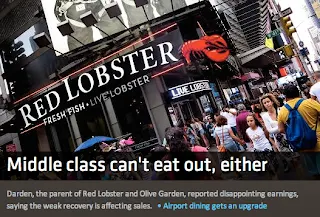Tuesday, September 24, 2013
33% Increase In Dutch Euthanasia Misreported As 13%
The figure for 2011 was 3,136, meaning the 2012 increase to 4,188 is 33%, not 13% as reported here by The UK Telegraph.
Monday, September 23, 2013
Should Chief Justice John Roberts Have Recused Himself On ACA Because Of Epilepsy?
Should Chief Justice of the Supreme Court John Roberts have recused himself from the ObamaCare case because he has epilepsy? He had a seizure as early as 1993, and another in 2007.
You know, a guy with a pre-existing condition like that may have felt compelled to help other people with pre-existing conditions by upholding ObamaCare. His own condition may have interfered with his judgment on the merits of the Affordable Care Act.
Striking it down would have meant that that provision of the Act guaranteeing coverage to people with pre-existing conditions such as his would have gone down with it.
The Rise Of Patents From The 1980s Is Basically A New Protectionism, Reducing Innovation
So says Jeffrey Snider, here:
Contrary to popular belief, again assuming I am correct in interpreting it, patents are not about innovation at all. The rise in patent applications was not a proxy for a new wave of innovation, but an era of protectionism. A patent is a legal form of destroying competition. Ostensibly, that is assumed to be a cost to the system worth bearing because we largely believe that patents encourage innovation by giving the innovator some protection to reap the benefits of trying to innovate. But is that really the case? Would innovation suffer from competition at the earliest stages?
Markets develop because market demand exists, and I happen to believe that innovation would be better served with competition right from the start. But to the question at hand, the sharp rise in patent applications starting in the 1980's was likely far more related to reducing competition than signaling the continued advancement of technology revolution.
Saturday, September 21, 2013
Bond Mutual Fund Prices Remain Expensive, Returns Negative: Cash Has Been King
Bond mutual fund prices remain expensive by historical standards despite the recent carnage, while returns have been negative. For a safe haven, cash has been the place to be over the last year, such as it is.
For example, the short duration bond index fund from Vanguard, VBISX, finished the week at 10.51, 1.05% above the high end of normal (10.40). Vanguard reports returns down -0.27% for this fund in the last year.
The intermediate duration total bond index fund from Vanguard, VBMFX, a mixture of short, intermediate and long bonds, finished the week at 10.61, 1.04% above the high end of normal (10.50). Vanguard reports returns down -2.77% for this fund in the last year.
The pure intermediate duration bond index fund from Vanguard, VBIIX, finished the week at 11.24, 2.18% above the high end of normal (11.00). Vanguard reports returns down -3.66% for this fund in the last year.
Meanwhile the long duration bond index fund from Vanguard, VBLTX, finished the week at 12.51, 4.25% above the high end of normal (12.00). Vanguard reports returns down -10.01% for this fund in the last year.
Add in the insult of all items inflation of 1.5% to these miserable returns over the last year and cash was the place to be for safety even though it is also down because of inflation (gold, by the way, has fallen, per the London Fix, from 1758.50 on September 20th, 2012 to 1349.25 on September 20th, 2013, a decline of 23.3%).
Clearly such bond funds have farther to fall before they become attractive safe havens once again.
Friday, September 20, 2013
WaPo Finally Demotes The Leader Of The Banana Republic To Lecturer
When you lose The Washington Post, you've really lost it.
The comment at the left was seen here in the comments section to an article in The Washington Post which, among other things, omits Obama's use of the term "Banana Republic" in his address in Kansas today, but does finally demote him to the mere lecturer that he was at the University of Chicago:
Obama at times sought to belittle GOP lawmakers. “The most basic constitutional duty Congress has is to pass a budget,” said the president, a former constitutional law lecturer. “That’s Congress 101.”
----------------------------------------------------------------------------------
The demotion from "professor" is interesting in the light of the omission of "Banana Republic" since America pretty much qualifies as one by the definition in Wikipedia if you remember that the bank and automobile maker bailouts enriched private enterprise by socializing the losses on the backs of the taxpayers:
Better, apparently, to deflate his credentials than face his fascism.
Economic Stress: Middle Class Can't Eat Out On Friday Night . . .
. . . neither at Red Lobster nor at Olive Garden:
"Outside Darden's niche in casual dining, limited-service eateries that don't require tipping are gaining ground."
Read more, here.
----------------------
Tonight's menu at your blogger's home? Baked Steelhead lemon pepper trout filet, Jasmine rice, and steamed broccoli with butter. Serves three tonight for $10.
Thursday, September 19, 2013
The World Has Learned Nothing Since The Crisis: Global Public Debt Is Up 63% 2008-2013
 |
| 2008 global public debt $32 trillion |
Global public debt, the amount owed by the world's governments, has risen by almost $20 trillion in the five years since the panic of 2008, an increase of nearly 63%.
Note the main offenders, none of whom has been practicing austerity in any sense of the term: America, Canada, Mexico, Brazil, The UK, Europe, India, China, Japan and Australia. Spendthrifts all.
See the data and charts, here.
 |
| 2013 global public debt $52 trillion |
None of this is ever going to be paid back. Chaos awaits.
Labels:
Australia,
Brazil,
Canada,
England,
Mexico,
The Economist,
The National Debt
Jobless Claims Plunge Again To A New Record Low Under Obama: 8 Weeks Under 300,000
Not-seasonally-adjusted first time claims for unemployment now average another new all-time low in the last four weeks under Obama, also marking the eighth week in a row below 300,000.
Over the last four weeks, jobless claims have averaged just 262,000 weekly, handily beating last week's old record 4-week average low of 273,000.
Over the last eight weeks, jobless claims have now averaged an astonishing 273,000 weekly.
Annualized these average levels would fall into the range of 13.6 million to 14.2 million per year. The best actual performance under Bush was 16.2 million per year, also not-seasonally-adjusted. So these are excellent numbers indeed, if they can keep them up. The difference, however, is that under Bush the low levels of claims occurred simultaneously with high levels of employment.
By the way, the advance estimate of 228,399 in last week's report for September 7th merely bumps up this week to a revised 229,485. Supposedly reporting problems were blamed for the low level. It appears any missing numbers from last week appear in this week's advance estimate, which is up +42,262 week over week, which means this week's advance estimate is significantly higher than it really is.
Read this week's report here.
Wednesday, September 18, 2013
If It's A Number And It's On Rush Limbaugh, You Can't Trust It
Here is today's Rush Limbaugh basic K-8 math error, which keeps him and his audience from appreciating the fact that high gasoline prices have been pummeling the American people for one year longer than he says they have:
"The number of people losing their jobs is up. The number of jobs lost, all of this, is up. The one thing that none of these stories cover is another thing that's going on, and that is the price of gasoline has been over $3 a gallon for 20 months now. Now, Obamacare is gonna raise everybody's health care costs. Premiums are gonna skyrocket. The cost of food is way up. Gasoline is over $3."
----------------------------------------------------
Actually the number of people losing their jobs is DOWN and down big in the last 2 months to a rate low enough to compete with George W. Bush, if it can be sustained. Usually part-time is not up significantly, and usually full-time is almost back to where it was on Election Day 2008. The real story there is the failure of full-time to recover to the 2006-2007 level.
But gas has been above $3 for 1000 consecutive days, according to The Wall Street Journal, not 600 days:
1000
------ = 33 months (not 20).
30
He read it, he flubbed it, boo hoo. And you people pay for that?
Labels:
Bush 43,
Energy 2013,
food,
Jobs 2013,
Obamacare 2013,
poverty,
Rush Limbaugh 2013,
WSJ
By Not Tapering, Fed Devalues Your $ In One Day By Almost What It Takes A Year To Do
The dollar fell 1.2% today because the Fed decided not to taper bond purchases, while year over year the dollar is down 1.5% to 1.8% because of inflation, as reported yesterday by the Bureau of Lies and Statistics, here:
The all items [Consumer Price] index increased 1.5 percent over the last 12 months. The [core] index [Personal Consumption Expenditures] for all items less food and energy has risen 1.8 percent over the last year; the 12-month change has remained in the range of 1.6 percent to 2.3 percent since June of 2011.
-----------------------------------------
By all means the Fed should have tapered, and increased interest rates to boot.
The war on the citizenry continues.
End the Fed.
(As far as broken clocks go, Ron Paul is correct twice every 24 hours).
Rush Limbaugh Can't Even Divide 1000 by 30
33: That's how many consecutive months gasoline has been above $3/gallon, but Rush just said 20 months.
Nipplehead.
The Wall Street Journal, yesterday, here:
American Businesses Have Saved $2.8 Trillion In Last Four Years Due To ZIRP
In the form of lower borrowing costs, according to this story from Bloomberg:
America’s companies, from Apple Inc. (AAPL) to Verizon Communications Inc., are saving about $700 billion in interest payments with the Federal Reserve’s unprecedented stimulus. ...
Savings of about $700 billion represents the difference between what companies that have sold bonds since Sept. 17, 2009, are paying annually based on an average maturity of nine years for securities in the Bank of America Merrill Lynch U.S. Corporate & High Yield Index, versus what they might have paid before the crisis.
After rising as high as 11.1 percent on Oct. 28, 2008, it wasn’t until Sept. 17, 2009 that yields fell below the pre-Lehman average of 6.14 percent, the Bank of America Merrill Lynch index shows.
------------------------------------------------------------
Just another reason corporate profits after taxes have skyrocketed to another record seasonally-adjusted annual rate of $1.83 trillion for Q2 2013.
Subscribe to:
Comments (Atom)
















